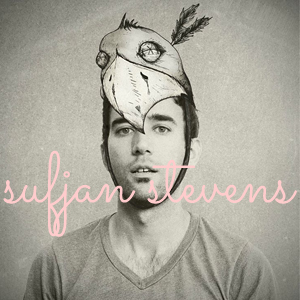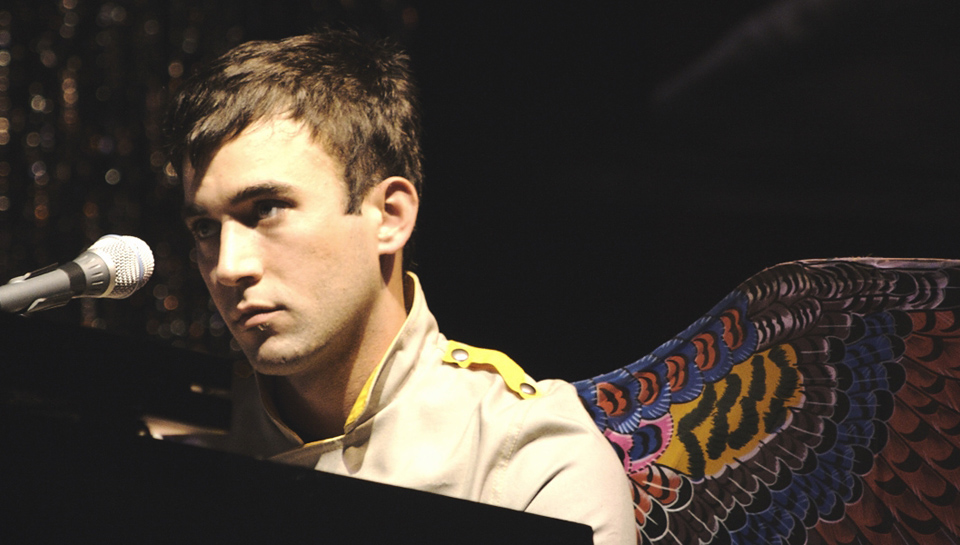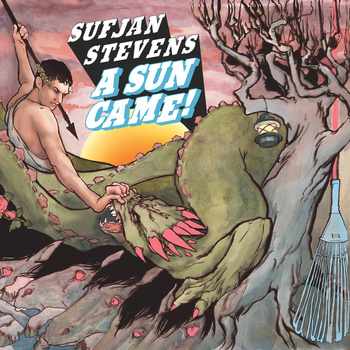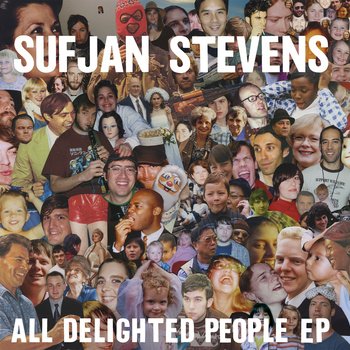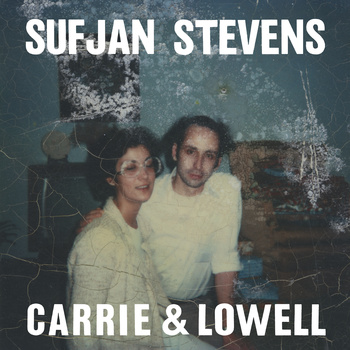Run Rabbit Run is an uncategorizable oddity: a collection of inventively arranged chamber pieces for string quartet that just happen to be written by Sufjan Stevens. The source material comes from Stevens' second album, Enjoy Your Rabbit, a set of glitchy, playful electronic miniatures based on the Chinese zodiac cycle that bore zero resemblance to the orchestral folk-pop for which he would become famous. Taking a page from Bang on a Can All-Stars' reworking of Brian Eno's Music for Airports and contemporary classical ensemble Alarm Will Sound's transcriptions of Aphex Twin, the string quartet Osso has hired a phalanx of New York's hippest young composers to recast these works as a surprisingly full-bodied and thoughtful series of picaresques. The results show gratifyingly little of the shallowness and amateurism that sometimes infects ventures beginning in rock and crossing over into the classical realm.
The New York composers Osso has enlisted-- Nico Muhly, Gabriel Kahane, Michael Atkinson, Olivier Manchon, Rob Moose, and Maxim Moston-- display real ingenuity in transcribing and setting these pieces for traditional string quartet. Osso's transcribers have risen gamely to the challenge of rendering glitchy electronic music for stringed instruments, seeming to treat it almost like a dare-- or an opportunity to remind the world that you don't need computers or amplification to make all those funny noises. In this spirit, they incorporate as many odd instrumental textures they can come up with, scratching and plunking away with abandon, and cycling neatly through a catalog's worth of 20th-century chamber music influences in the process. The lurching, grotesque dance rhythms on "Year of the Ox" summon Bartók's darker interpretations of Hungarian folk tunes: On "Year of the Sheep", an uneasy wash of unresolved chords that recalls Charles Ives' "Three Places in New England" settles like mist while someone makes clicking noises with their mouth. Echoes of Debussy's String Quartet No. 1 pop up everywhere. The title track sounds like Ravel's String Quartet in F as played by slightly overzealous high schoolers.
Not that you have to know anything about classical music to enjoy Run Rabbit Run. The Easter Egg hunt is a fun and absorbing game for classical nerds, but the album works just fine without it. Osso play with a rich, gorgeous tone and a wonderfully alert dynamic, switching effortlessly between beautiful string passages and gnarlier sound effects. "Year of the Snake" opens with an expansive, long-limbed string melody (echoes of Copland), but less than a minute in, a cellist digs lustily into his C string until it groans and scrunches in protest, the pitch warping like a sun-damaged cassette. From there, we get a round-robin of creepy harmonics, a triumphant theme that feels appropriate for a royal court, and some scurrying string scratches redolent of things living in your floorboards. It's a pleasantly dizzying tour and it all takes place in five minutes.
It's hard to know what Sufjan fanatics, who have been waiting four years now for a proper full-length follow-up to Illinois, will make of this one-off, but Run Rabbit Run serves as a welcome reminder that his curious, try-anything spirit is part of what got our attention in the first place. It also functions nicely as a palette cleanser to help prepare for the deluge of Sufjan-related activities looming on the horizon: the multimedia box-set release of his BQE suite and an ambient instrumental album recorded with his stepfather, Lowell Brams, and Bryce Dessner of the National. The excellence of Run Rabbit Run reassures that whatever seemingly dubious, over-ambitious, or unlikely project Sufjan tackles next, it will probably prove worthy of our attention.
